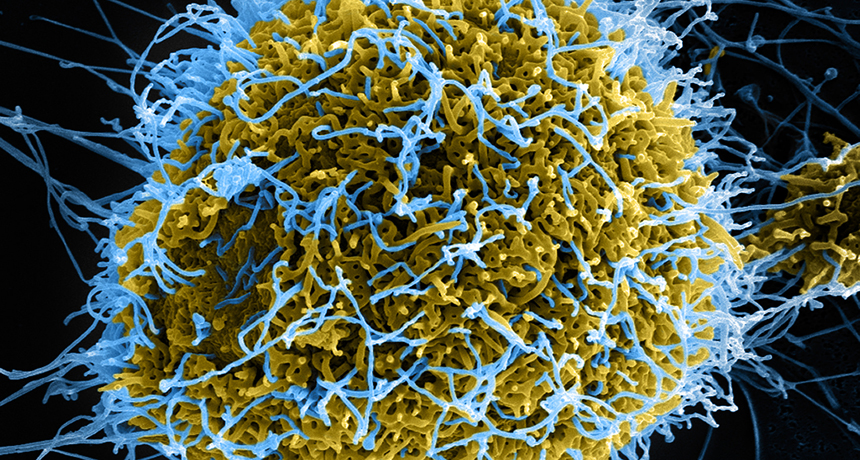(单词翻译:单击)
What is a virus?
病毒是什么?
Influenza. Ebola. The common cold. HIV/AIDS. Measles.
流行性感冒,埃博拉病毒,普通感冒,艾滋病毒,麻疹。
Viruses cause these diseases - and many more. Some are serious. Others, not so much. For better or worse, viruses are part of life.
病毒会导致上述疾病,或者更多。有些很严重,有些则不然。不论怎样,病毒都是我们生活中的一部分。
It surprises many people to learn that viruses "live" in us but aren't technically alive. Viruses can replicate only inside the cells of their host. A host can be an animal, plant, bacterium or fungus.
要知道病毒虽然寄居在我们身上并不意味着它就是活的,这可能会令很多人大吃一惊。病毒仅在宿主的细胞内进行复制。它的宿主可能是动物、植物,也可能是细菌、真菌等等。
Viruses are sometimes confused with another family of germs: bacteria. But viruses are much, much smaller. Think of a virus as a tiny package jacketed in a protein covering. Inside is either DNA or RNA. Each molecule serves as an instruction book. Its genetic information provides instructions that tell a cell what to make and when to make it.
通常我们会把病毒与它的另一个家庭成员-细菌混淆,其区别就是病毒小得多多了。病毒身穿蛋白质外套,内含脱氧核糖核酸或核糖核酸。每一个分子充当着一本说明书。其遗传信息为细胞提供指导,告诉他们什么时候该做什么。

When a virus infects a cell, it sends that cell a simple message: Make more viruses.
当病毒侵入细胞内时,它会给该细胞发送一个简单的信号:复制更多的病毒!
In that sense, this virus is a hijacker. It breaks into a cell. Then it makes the cell do its bidding. Eventually, that host cell dies, spewing new viruses to attack more cells. That is how viruses sicken a host.
在这个意义上,病毒就变成了一名劫持犯,它闯入细胞,迫使其按指令行事。最终宿主细胞死掉,吐出新病毒攻击更多细胞,这就是病毒入侵细胞的整个过程。
(By the way, a computer virus isn't a real virus. It's a type of software, meaning computer instructions. Like a real virus, however, a computer virus can infect - and even hijack - its host computer.)
(顺便提一下,电脑病毒不是真正的病毒,他是一种软件,一种计算机指令。然而与真实病菌类似的是,电脑病毒也会入侵主机内部并将其劫持。)
The body can rid itself of many viruses on its own. Other viruses may present too big a challenge. Medicines to treat viruses exist. Called antivirals, they work in different ways. Some, for example, block the entry of a virus into a host cell. Others interrupt the virus as it attempts to copy itself.
身体可以自行清除许多病毒,但有些病毒表现的像一个巨大挑战。能对抗病毒的药物是存在的,叫做抗病毒药。他们以不同的方式起作用,比如有的会阻止病毒侵入宿主细胞内。有的会中断病毒复制。
In general, viruses can be hard to treat. That's because they live inside your cells, which shelter them from medicines. (It's also important to note that antibiotics don't work on viruses.)
总之,病毒很难对付,那是因为它们寄生在你的细胞内部,增加了药物使用困难。(还需注意的是抗生素可能不会对病毒起什么作用)


